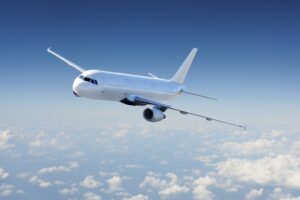
If you’ve recently had a tooth pulled and have a trip planned, you may be wondering: Is it safe to fly after a tooth extraction? The short answer is yes, most people can safely fly after a tooth extraction, especially if a few precautions are taken. However, there are important factors to consider to ensure your comfort and avoid complications while in the air.
The First 24–48 Hours Are Critical
The first two days after a tooth extraction are the most crucial for healing. During this time, a blood clot forms at the extraction site, which helps protect the area and starts the healing process. Disrupting this clot can lead to a painful condition called dry socket, where the bone and nerves are exposed.
Flying itself doesn’t directly cause dry socket, but the combination of pressure changes, dry cabin air, and potential activity during travel could increase your risk if you’re not careful. For this reason, many dentists recommend waiting at least 24 to 48 hours before flying.
How Cabin Pressure Affects Healing
Changes in air pressure during takeoff and landing can sometimes cause discomfort in healing sockets, especially if the extraction involved upper molars near the sinuses. While this discomfort is usually mild, those who are still experiencing pain or swelling might find the added pressure makes things worse. If you absolutely must fly soon after surgery, ask your dentist if a decongestant or anti-inflammatory medication could help reduce pressure-related discomfort.
Tips for Flying After a Tooth Extraction
If you’re cleared to travel, keep these tips in mind to protect your healing mouth and minimize discomfort:
- Wait if you can: Ideally, delay flying for at least 48 hours after extraction, longer if the procedure was complicated or involved wisdom teeth.
- Follow post-op instructions: Continue taking any prescribed medications, avoid using straws, and follow your dentist’s instructions for rinsing, eating, and oral care.
- Stay hydrated: Airplane cabins are dry, which can slow healing. Drink plenty of water, but avoid carbonated or acidic drinks that can irritate the extraction site.
- Pack your medications: Bring any painkillers, antibiotics, or anti-inflammatories your dentist prescribed in your carry-on so they’re easy to access.
- Avoid hard or crunchy foods: Stick to soft foods while you travel, like yogurt, applesauce, or mashed potatoes, to prevent irritating the socket.
- Bring gauze and ice packs: If you’re still dealing with light bleeding or swelling, pack extra gauze and a cold pack in your bag. While an ice pack may be tricky to keep cold, there are travel-friendly, single-use ones available.
When to Delay Travel
If you’re experiencing excessive bleeding, swelling, fever, or intense pain, postpone your trip and contact your dentist. These symptoms could be signs of infection or dry socket, both of which require treatment before flying.
Flying after a tooth extraction is generally safe, especially if you’ve passed the initial healing phase and follow your dentist’s advice. Giving yourself enough rest and being prepared for the flight will help you stay comfortable and avoid setbacks. When in doubt, check in with your dentist before boarding the plane.
About the Author
Dr. Erin M. Prach is a graduate of the University of Colorado School of Dental Medicine. In 2014, she completed a continuing education course on oral surgery in Guatemala and is about to achieve Diplomate Status with the American Board of Dental Sleep Medicine. Today, Dr. Prach is a member of the American Dental Association as well as the Wyoming Dental Association. If you’re in need of tooth extraction, Dr. Prach and our team offer advanced technology to increase your comfort and flexible financing options. Schedule your appointment today online or call our Casper office at (307) 337-4770.
